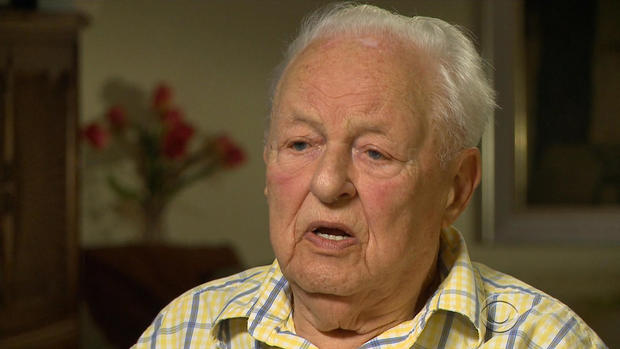For Holocaust survivor, reparations are a little late
BOCA RATON, Fla. -- This was a week of remembrance for the six million Jews murdered in the Holocaust, thousands of whom were transported to Nazi death camps aboard French trains.
Now, for the first time, the U.S. State Department, in conjunction with France, will distribute $60 million in reparations. Survivors must apply by the end of this month.
Kurt Rosendahl, now 96, was just 22 when French police forced him onto a train to the Auschwitz concentration camp. The ID number tattooed by the Nazis is still visible on his arm.
"They were cattle cars," Rosendahl told CBS News. "No food. No sanitary facilities. No way to wash."
Rosendahl said between 75 and 100 people were packed into the train car with him. The cars were supposed to carry just 40 people. A replica sits in what was once the Drancy internment camp outside Paris.
Most of the 76,000 Jews that France deported passed through there on their way to Nazi death camps like Auschwitz. All but 2,000 were killed.
France's state-owned rail company - known as SNCF -- collected money for each person it transported -- including 6,000 children.
A lawyer for SNCF denies that it actually profited from the cash influx, however, since the railway was under direct control of the German Nazi Military command that was collaborating with the Vichy Government.
More than 70 years after the war ended, at the urging of the U.S. government, the French have created a compensation fund for survivors and victims' families. In exchange, France will be protected from any related U.S. lawsuits.
The deadline for applications is May 31st and information is available on the State Department website. To gather proof of deportation, applicants can search SNCF records here.
Former Ambassador Stuart Eizenstat negotiated the agreement.
"When you come right down to it, it's always money," Eizenstat told CBS News. "They wanted to offer less, we wanted more, and coming to a conclusion was difficult."
For Rosendahl, who just recently lost his wife of nearly 70 years, the expected $100,000 payment is a little late.
"We have a lot of expenses, so we feel it's necessary and overdue," he said.
It may not be an apology, but in the twilight of Rosendahl's extraordinary life, it's some recognition from the country that betrayed him.

